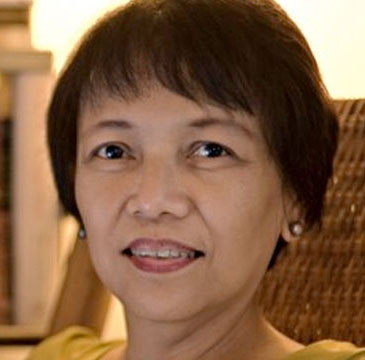SUMMARY
This is AI generated summarization, which may have errors. For context, always refer to the full article.
 A governor of a Northern Luzon province treated reporters to a weekend in Boracay, ostensibly to show them how this island markets itself to the rest of the country and the world. This coastal province wants to be a must-see-destination and is looking for success stories to emulate.
A governor of a Northern Luzon province treated reporters to a weekend in Boracay, ostensibly to show them how this island markets itself to the rest of the country and the world. This coastal province wants to be a must-see-destination and is looking for success stories to emulate.
To some outsiders, the all-expense-paid trip didn’t feel right. It was a junket, paid for by public funds.
When asked why they joined the outing, some of the reporters replied that it was a weekend break. They weren’t working on those days.
Oh! So they cease to be journalists during Saturdays and Sundays and take on the identities of simply being residents of the province.
This doesn’t happen only in the provinces. In a national daily, a reporter or two took a leave to join junkets because they were disallowed by their editors. These free trips were not meant to yield stories but were non-events to pamper journalists, say, in a Hong Kong or Bangkok shopping trip.
Oh! So these staff members think they do not represent their newspaper when they are on leave and shed off their reporter status, only to assume it when they go back to pound their beats.
Gray zone
These and other tricky situations form a gray zone in journalism, the area where the ethical rules seem unclear. We discussed this in the recent Media Nation, an annual gabfest on issues that affect the way we do journalism. This time, media corruption was the theme.
In the gray zone, journalists are not told to write stories with a certain slant or angle. They are not asked to kill any story. They are just feted with food and other freebies.
Everything here is genial and smiling. No demands made. No questions asked. No inner struggle to make decisions.
There are ways to navigate this area, of course. The easiest and clearest thing is for journalists to simply say no to junkets. It makes life less complicated. Think of our mantra: our loyalty is to the truth and the public. Nothing should come in the way of that, certainly not a fun and funded trip to Boracay or Hong Kong.
For their part, publishers and editors should sanction their erring staff members and make it costly for them when they go astray. They should make their codes of ethics work rigorously.
Ninong and ninang
Other examples came up. We were divided into groups and each zeroed in on one gray area. Here are some of them:
- making news sources and subjects of coverage ninong and ninang during weddings and baptisms;
- going to bed with sources;
- accepting free products for reviews, especially expensive tech gadgets;
- participating in raffles wherein everybody wins big say, a refrigerator (this is common during politicians’ Christmas parties)
A few words on each of these.
We’ve seen reporters covering the political beats getting high government officials, senators, and congressmen as sponsors for their wedding or for their children’s baptism. This practice is generally frowned upon because they write about these personalities.
Normally, journalists should keep a healthy distance from their sources. This is required for a fair coverage so as not to be influenced by relationships. At times, we are compared to judges and justices because of the need to be cold and impartial.
Of course, having sex with sources is a no-no. This happens not only in the movies when reporters want intimate access to gain the deep-throat kind of information. Apart from being manipulative, it colors the relationship between reporter and subject/source.
Now that the Christmas season is upon us, reporters get invited to parties where big prizes are given away during raffles—not just for the first 3 winners but for all those covering the beat. Some have won TV sets, I-pods, and tickets to a favorite destination in the country or elsewhere.
A number of news organizations have disallowed their reporters from taking part in these raffles because they are an excuse to give pricey gifts and favors.
Disclosure
As for product reviews, the best thing to do is to disclose that the gadget was given by the company or to return it after it is reviewed.
Disclosure is a must in many areas of the gray zone. For example, when a journalist is invited to attend a conference, he or she should include in the report that a certain NGO or company sponsored the trip. The public should know this as well.
Other examples: A columnist who is not a staff member of a publication should disclose what his or her main job is. And when writing about the business or other interests of the owners of their news organizations, reporters should say so.
Here’s the paradox of our profession: we should have empathy. We should care about issues and people so that we are able to report effectively. At the same time, we should have hearts and minds of steel—so that we do not succumb to temptation and accept payoffs, favors and live lifestyles similar to the powerful people we write about.
That’s the tension in each journalist. But, as most of those who took part in Media Nation said, the values each one holds dear still make for the best moral compass. – Rappler.com
Add a comment
How does this make you feel?
There are no comments yet. Add your comment to start the conversation.